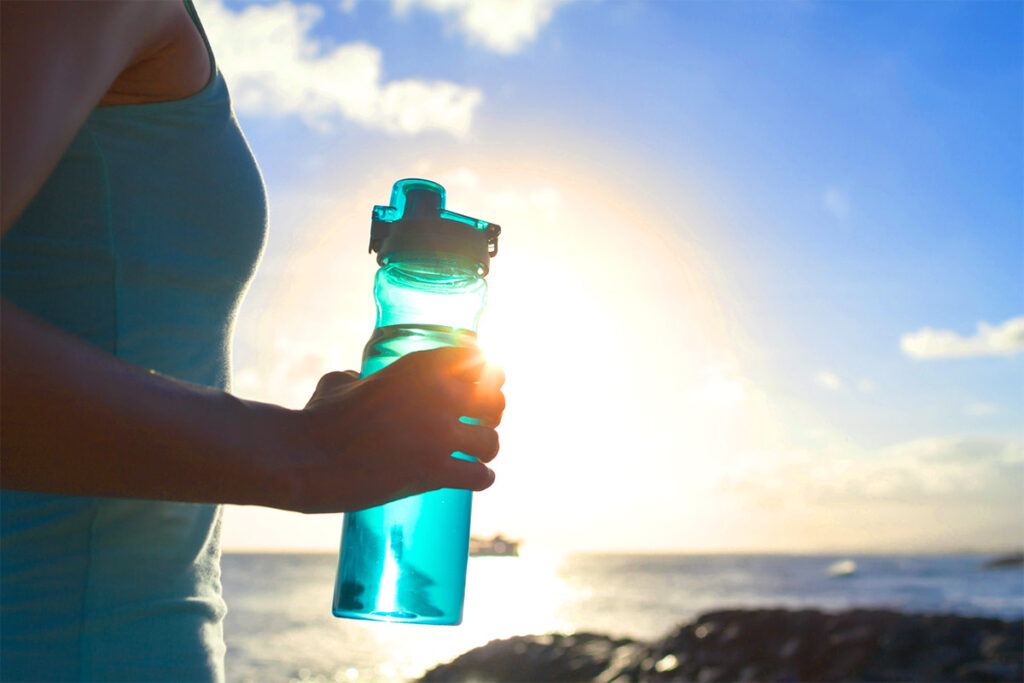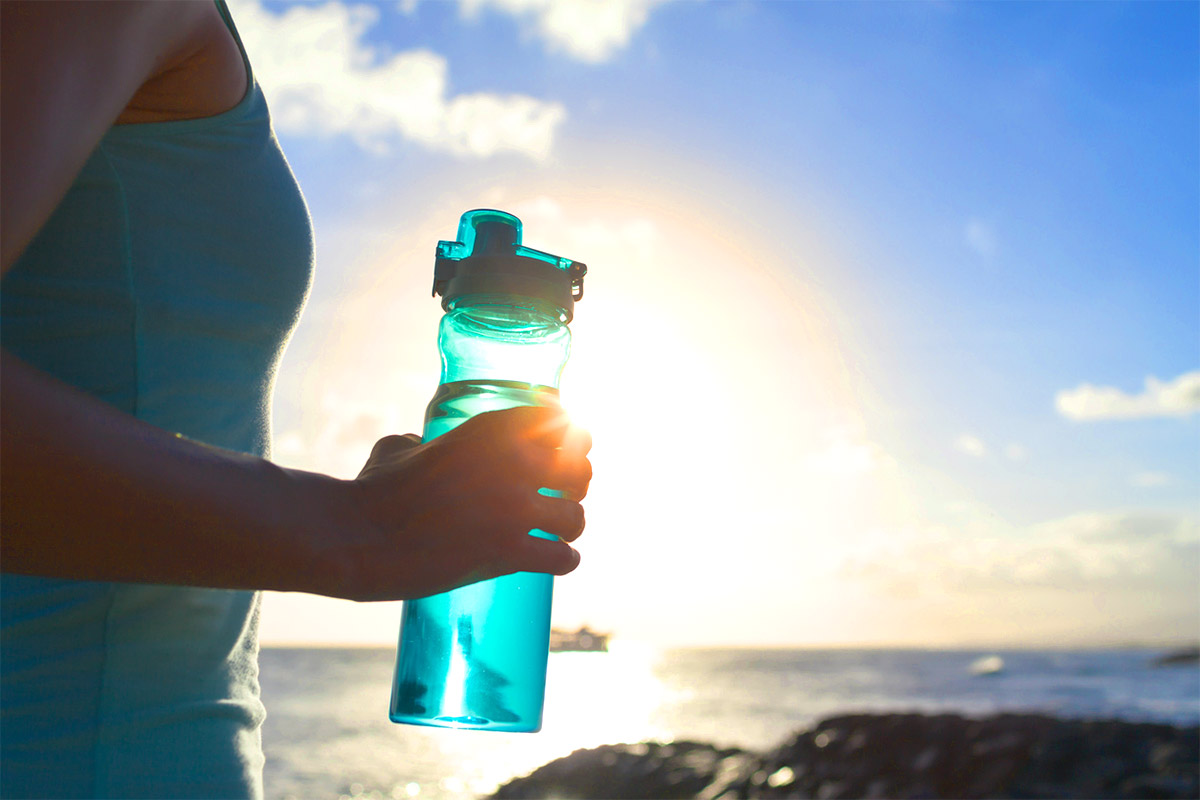Why I Love Electrolytes and How They’ve Improved My Life
When I was growing up, when I thought about Electrolytes, the first product that popped into my head was Gatorade.
That was what I drank whenever I swam as a kid in high school. It was my go-to whenever I did any kind of PT in the Navy, and as a mostly inactive adult, after I got out of the military, it was my recovery drink of choice after a night of drinking.

Being completely honest and transparent, I really did not understand the purpose of drinking electrolytes while playing a sport or working out.
As a kid, I did it because that’s what was in the commercials and all the other kids drank it at the swim meets too. As an adult, it was just something that I did out of habit versus really understanding the true purpose and value of electrolytes. And, back then, I drank the full sugar Gatorades because they tasted great, I was highly addicted to sugar, and that’s just how Gatorade was formulated.
I truly believed that in order to stay hydrated, I had to drink water only, and plenty of it. I remember that being the mantra from everyone and every institution, “make sure you drink eight glasses of water a day so that you stay hydrated.”
- Do I always have to drink eight glasses of water a day?
- Do other liquids count?
- Do I have to drink that much water even if I’m not thirsty?
These are questions that I remember asking as a kid and, honestly, even as an adult. It wasn’t until this past year that I really got a better understanding of hydration and how salt plays a huge role in balancing and managing it.
There’s so much more to hydration than just water
Staying hydrated is more than just drinking water all day long. It’s about balancing the electrolytes in your body throughout the day. In fact, drinking too much water can throw off the balance of electrolytes in your body so badly that it can make you sick or potentially kill you.
God created beautifully balanced machines when he created our bodies. He engineered us to have specific triggers for when we need food, sleep, and drink. Our hypothalamus regulates all these things in the body. We have intricate hormonal controls for all these needs, ghrelin and leptin for hunger and melatonin for sleep. When the hypothalamus senses a change in blood volume or pressure, specifically when it drops, it sends the message to drink, and then we feel thirsty.
Our bodies were designed to only intake what we need when we need it. That applies to everything, whether it’s food, sleep, or drink.
Drinking when our bodies aren’t looking for hydration has the potential to throw off the electrolyte balance in our bodies.
Electrolytes are the key to hydration
Sodium is a critical electrolyte, which means that it helps carry electrical impulses through the body. It also regulates the balance of fluids in our body which is what the hypothalamus senses when it comes to regulating thirst. Potassium is a mineral that works with sodium to balance that fluid level as well.
As we sweat or go to the bathroom, we aren’t just getting rid of water, we are getting rid of salt in the process. As a result, we need to make sure that we are replenishing both so that our bodies can maintain the right fluid balance and continue to effectively transport neural signaling across all our cells.
The problem with only drinking water is that we are not effectively replenishing the salts that we are losing thru the process of sweating or using the bathroom. This can lead to headaches, fatigue, or even cramping of muscles as your cells try to pass the right electrical signals without the right balance of sodium and potassium in your body to do it effectively.
If you drink and you aren’t thirsty, you run the risk of diluting the sodium levels in your body. This can create symptoms as bad or even worse than not replacing enough of the sodium you are losing.
Your body was intelligently and lovingly designed. In general, unless there’s another underlying medical reason that impacts the thirst signaling, you should only be drinking if you are thirsty. If you are working out in any capacity or doing enough physical exertion in an environment that promotes a lot of sweating, you need to be drinking water with electrolytes in them to replace the salts that you are losing.
When you consume less carbohydrates, your body tends to lose more sodium than someone who eats a standard American diet. Because your body tends to have a lower insulin response in a low carbohydrate diet, that lower insulin lowers the hormone aldosterone. Aldosterone is the hormone that tells your kidneys to hold on to sodium. The lower the aldosterone, the higher the amount of sodium your body excretes.
Here are some simple tips to keep your electrolytes up and stay hydrated
- Only drink when you are thirsty. Your body is intelligently designed by God. It knows when you need to drink and will tell you through the sensation of thirst. So, if you get thirsty, then drink, and if you’re not, the extra water isn’t needed now
- Drink a balanced electrolyte drink if you are sweating or are feeling dehydrated at all. By balanced, I mean there needs to be a good mix of sodium, potassium, and magnesium. You don’t need sugar to help with absorbing the sodium. Pick something that has around 1000mg of sodium, some potassium and magnesium, and no sugar. I personally love LMNT, but it’s not for everyone. There are a lot of brands out there; just make sure you are looking at the ingredients closely.
- If you eat a low to no carbohydrate lifestyle, make sure you are consuming enough salt. In general, people who live a low-carb lifestyle have difficulty getting enough salt daily, especially if they’ve cut out processed foods. Whole foods don’t really have naturally occurring salt, and they have lower aldosterone levels because of the lower circulating insulin levels in their body. You should look at targeting somewhere between 5000-7000mg of sodium a day. That looks like 2.5 teaspoons of salt.
- Focus on consuming whole foods. Try to avoid processed foods as much as possible, and there are a lot of great whole food sources of potassium and magnesium. Fatty fish and shellfish are high in both magnesium and potassium. Poultry, beef, and pork are also high in potassium. Fruits such as berries, avocados, kiwis, and melons are also good sources of both magnesium and potassium.

If you want to eat better, get stronger, and lose weight, then let’s talk. Request a call with me now.


Thanks, Lisa, for the reminder on getting enough electrolytes. I drink a lot of water and think I get sodium through foods and magnesium through a supplement, but not sure how much potassium I am taking in daily. I purchased a no sugar, electrolyte powder that contains all of these to consume periodically, especially when out in the heat or doing more intense exercising. And always a great reminder to eat whole foods whenever possible!